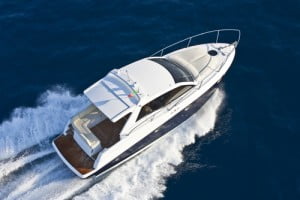Yo Ho, A Pirate’s Life for Me? Boating while Intoxicated
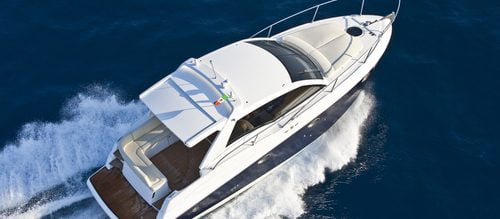
Work with experienced Tampa Bay boating accident lawyers!
Gone are the days of rum-swilling pirates who swig from their bottles and spin the wheel in tandem. Today, we are limited by the laws of the land, unlike those high-seas-faring scallywags. Much less burning and pillaging happens now – though us Tampans do know how to have a swashbuckling good time pretending to be pirates on Gasparilla!
While DUIs are almost universally condemned, BUIs (Boating Under the Influence) do not carry nearly the same stigma. However, Florida’s laws against boating while impaired are just as strict as those while driving, which makes sense when you consider that Florida leads the nation in the number of boating deaths annually—and one third of those fatalities involve alcohol.
Like a DUI, a BUI has the potential to lead to a criminal record, probation, possible incarceration, fines, court fees, community service, mandatory educational courses, and the removal of your boat. It also counts as a DUI on your record, or can be counted with a previous DUI.
The big difference between a DUI and a BUI is that, unlike drinking and driving, drinking and boating is legal. You can be sipping a beer while steering. The action becomes illegal only when the driver is impaired or the legal limit of 0.08 is reached. If you add in the lack of prerequisites to driving a boat (in comparison to driving a car), it can be tricky for a law enforcement official to make an accurate call regarding whether judgment is impaired.
If you’ve been injured while on a boat with an impaired captain or in a boating situation involving alcohol, your situation needs the knowledge and experience of a lawyer. Contact an Tampa boating accident attorney at Wagner, McLaughlin & Whittemore for a free consultation today.

Contact the Tampa OSHA attorneys TODAY!
One of the most common jobs in America is also one of the most dangerous. Every day, construction workers face a multitude of dangers; an accident on the job could result in serious injury or even death. Out of 775 total construction fatalities in 2012, more than one-third were fall-related. Many of those deaths were preventable. At Wagner, McLaughlin & Whittemore, our personal injury attorneys in Tampa want to share some tips to help keep you safe from falls and other accidents on the job.
The best policy while on the job is the most common-sense one: play it safe. Contractors can prevent falls from heights on their worksites by following a few common-sense standards:
- Plan ahead to ensure safety before starting every job.
- Provide maintained and proper equipment for working at heights.
- Train workers to use the equipment properly and to work safely on roofs, ladders, and scaffolds.
The Centers for Disease Control and Prevention (CDC), along with the National Institute for Occupational Safety and Health (NIOSH) and other partners, launched the National Campaign to Prevent Falls in Construction in April of 2012 as a government-labor-management program. The campaign encourages residential-construction companies and others in the industry to work safely at heights and use the correct equipment. Campaign partners are encouraged to participate in discussions amongst owners, managers, and other employees about falls and how to prevent them. For more information about joining the campaign, visit the campaign website at https://www.osha.gov/stopfalls/
If you have been injured or lost a loved one because of a construction fall or accident, click here or call Wagner, McLaughlin & Whittemore at (813) 225-4000 to speak to an experienced Tampa Bay accident lawyer. Our attorneys would be glad to discuss your situation with you and help lay out your options.
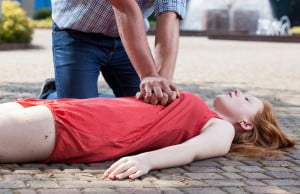
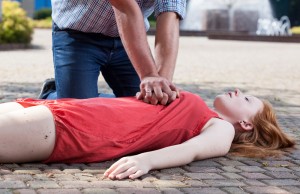 Good Samaritans are usually the stuff that fuels stories of heroes. These are the ordinary citizens or the off-duty doctors and nurses who spring to the aid of someone who has been injured. They often save lives with their quick thinking and help end emergencies with better outcomes than might otherwise have occurred. Anyone can try to become a Good Samaritan, whether they have medical training or not, and Florida Statutes section 768.13 – the Good Samaritan Act – seems to offer them a certain amount of protection from civil liability for their actions… at least, when all goes well.
Good Samaritans are usually the stuff that fuels stories of heroes. These are the ordinary citizens or the off-duty doctors and nurses who spring to the aid of someone who has been injured. They often save lives with their quick thinking and help end emergencies with better outcomes than might otherwise have occurred. Anyone can try to become a Good Samaritan, whether they have medical training or not, and Florida Statutes section 768.13 – the Good Samaritan Act – seems to offer them a certain amount of protection from civil liability for their actions… at least, when all goes well.
But what if you’ve been injured in a traffic accident or other accident and the would-be Good Samaritan who comes to your rescue actually makes things worse? What if you would have been better off if he’d left you alone? What if she was so incompetent, it seemed like she was actively trying to hurt you? What if he was trying his best, but his negligence caused you serious injury?
Whether you’ve been involved in a Good Samaritan situation as the injured victim or whether you wonder if it’s a good idea to become a Good Samaritan yourself someday, it can be helpful to keep the following points in mind:
Emergency Only
A Good Samaritan is only protected if he provides medical care, treatment, or advice in an actual emergency situation. If there is no emergency, there is no Good Samaritan protection. Keep in mind, however, that even emergencies do not provide blanket protection to someone who does harm under the guise of a Good Samaritan.
Good Faith
Good Samaritans provide their services for free and act in good faith. Someone who is trying to get something for herself by “helping” you won’t qualify, and someone who neglects to show proper care won’t be fully protected.
Consent of the Injured
An injured person can refuse the help of a Good Samaritan. If that injured person is able to make decisions on their own, the Good Samaritan cannot force the person to accept any medical treatment. If the injured person says to stop, the Good Samaritan likely will not be protected.
Ordinary Reasonably Prudent
Good Samaritans offering assistance have to act in the same way that an “ordinary reasonably prudent person would have acted under the same or similar circumstances.” The definition of how “ordinary reasonably prudent” people act in a given circumstance, however, can be hard to define for every situation. Not every action of a Good Samaritan is prudent, and many injuries caused by would-be Good Samaritans are actionable by the victims. Thus, this qualification must be examined on a case-by-case basis, with a full understanding of the law and legal precedents.
If you’ve been involved in an accident and you believe that the actions of a would-be Good Samaritan on the scene made your injuries worse, it is best to consult with a qualified attorney – both about your accident and about the possibly negative actions of your “rescuer.” At the Tampa, Florida law firm of Wagner, McLaughlin & Whittemore, we have been representing injured plaintiffs since 1967, and we have the experience to help you through all aspects of your case. Contact us today for a free consultation.
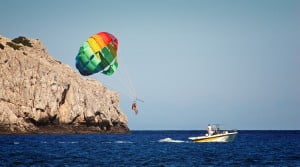
Work with experienced Tampa personal injury attorneys!
Parasailing is one of the most popular attractions along Florida’s coastline. You pay your money, take a ride in a boat, strap yourself into a harness – possibly with a friend lashed to your side – and ride a huge parachute upward as you trail behind the boat. The views are fantastic, the exhilaration is like nothing else… and the danger is real.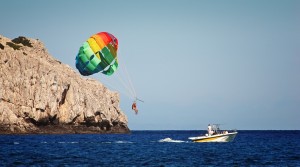
Prior to October of 2014, regulations in the parasailing industry were few and inadequate, leading to injuries and death as ropes broke, harnesses failed, and passengers either fell or were carried disastrously off course. Finally, after several tragic deaths over the last decade, Florida lawmakers last year passed several rules to enhance the safety of this very popular sport.
Codified in Florida Statutes section 327.37, parasailing operators must observe the following general rules (not a complete list):
- Someone in the boat other than the operator must be able to observe the person parasailing
- No parasailing at all may occur between half an hour after sunset to half an hour before sunrise
- Life jackets must be worn
Commercial parasailing companies must also adhere to the following additional requirements, from Florida Statutes section 327.375:
- Obtain liability insurance – and show proof of it to any customer who asks – of at least $1 million per occurrence and $2 million annual aggregate
- Be licensed by the US Coast Guard
- Have a functional VHF marine transceiver on board, along with a separate electronic device capable of providing access to the National Weather Service forecasts and current weather conditions
- Keep a weather log for each trip and stop parasailing under certain weather conditions:
- Sustained local wind speed of 20 mph or above
- Wind gusts at 15 mph or more higher than the sustained wind speed
- Wind gusts in excess of 25 mph
- If rain or heavy fog reduces visibility to less than half a mile
- If a lightning storm comes within 7 miles
Despite these regulations, Floridians and tourists interested in parasailing will want to research the reputation and safety record of parasailing companies before engaging in the sport. If you are injured while parasailing, consult with a qualified attorney as soon as possible after your accident.
The Tampa, Florida law firm of Wagner, McLaughlin & Whittemore is proud to fight for the rights of accident victims. Contact us today for a free consultation.

Most trial lawyers representing plaintiffs in civil cases work on a contingency- fee basis – meaning they don’t get paid anything unless and until they collect an award for their clients. This can translate into heavy risks for the attorneys involved, as some of the most important lawsuits involve years of work and hundreds of thousands of pages of court filings before a settlement or court resolution is reached.
Each year, Public Justice awards a Trial Lawyer of the Year Award to recognize those lawyers who took risks to litigate important cases and right egregious wrongs. The 2015 award winner will be announced on July 13. We at WM congratulate each of the finalists for their tireless efforts and demonstrated commitment to justice. The five finalists are as follows:
David v. Signal International
Just the first in a string of related cases stretching over seven years, this case went all the way to a complex jury trial and proved that Signal International was responsible for labor trafficking, fraud, racketeering, and discrimination. The attorneys in the case proved that Signal International lured workers from India with false promises of permanent residency and good jobs. Once the workers were here, they were packed into tiny trailers and charged over $1,000 per month. Evidence at trial showed that when the workers tried to organize to take action, Signal International locked them in trailers and fired their leaders. At the conclusion of the four- week trial, the jury unanimously awarded the workers $14-million.
Disability Rights Network of Pennsylvania v. Wetzell
After negotiations with the Pennsylvania Department of Corrections were unsuccessful, this case was filed and quickly forced a negotiated settlement from the DOC on behalf of mentally ill prisoners held in solitary confinement. The settlement ensured prison reforms including regular mental- health evaluations for all prisoners, no solitary confinement for mentally ill prisoners (absent “exceptional circumstances”), and limitations on restraints and other disciplinary measures for prisoners with severe mental illnesses.
Elwin v. NS Home for Colored Children & Province of Nova Scotia
This case ended over 70 years of horrific physical, sexual, and emotional abuse of African-Canadian orphans placed in the Halifax Home for Colored Children. When a series of personal- injury suits failed to convince the government that this “home” was abusive, the Elwin class- action case was filed in 2011. Finally, after a 14-year battle, the Canadian government and orphanage conceded what was happening and agreed to a $34-million settlement.
In re McCray, Richardson, Santana, Wise and Salaam Litigation
In 1989, five young African-American and Hispanic teenagers were arrested and convicted of rape, serving between seven and thirteen years in prison. In 2002, the “Central Park Five” were exonerated and their coerced confessions exposed. Over the next 13 years, their attorneys fought through hundreds of depositions and hundreds of thousands of pages of discovery until the city finally agreed to a settlement of $41-million.
Navajo Nation v. U.S.
Attorneys for the Navajo Nation argued that for 70 years, the U.S. government mismanaged its trust of 14- million acres of land belonging to the Navajo Nation, depriving the Nation of royalties owed to it. At the conclusion of this eight-year case, the United States agreed to pay $554-million to the Navajo Nation.
At Wagner, McLaughlin & Whittemore, we are proud to be part of a system that holds governments and corporations accountable for their wrongdoings. If you have been injured – physically, financially, or otherwise – by the actions of the government or a corporation, obtaining fair compensation can seem like a daunting, impossible task. We are here to help. Contact us today for a free consultation.

 It used to be that citizens in Florida were barred from suing the state or any of its agencies or subdivisions. Until the mid-1970’s, if you were injured or damaged in any way by negligent governmental action, you could not recover any amount of money from the state because of the doctrine of sovereign immunity.
It used to be that citizens in Florida were barred from suing the state or any of its agencies or subdivisions. Until the mid-1970’s, if you were injured or damaged in any way by negligent governmental action, you could not recover any amount of money from the state because of the doctrine of sovereign immunity.
In 1975, however, Florida enacted Florida Statutes section 768.28, which provides a partial waiver of Florida’s sovereign immunity. Since then, Florida citizens have been able to recover damages from the state, subject to a few very important exceptions and limitations.
Certain Actions Only
Florida, along with its subdivisions and agencies, may be sued for some negligent or wrongful acts or omissions, but generally may not be sued for bad policy decisions. For example, the state is typically immune from suit for the decision not to place a stoplight at a busy intersection but is liable for its negligent failure to maintain a stoplight at a busy intersection. Police officers are often immune from liability, as demonstrated by court cases protecting the state from liability in cases ranging from ordinance enforcement decisions to prisoner transfer to firefighting. This immunity isn’t absolute, however, and state agencies have been found liable for such actions as failing to detect child abuse or for failing to correctly follow police procedures in a traffic stop.
If you have been damaged because of the negligent decisions or actions of a state agency, your ability to recover will depend in large part upon the type of action or decision that is at the core of your injuries.
The State or the Employee
Your attorney will have to advise you as to whether you should sue the state or its employee or both. Florida Statutes section 768.28(9)(a) provides that officers, employees, and agents of the state may only be sued personally if they “acted in bad faith or with malicious purpose or in a manner exhibiting wanton and willful disregard of human rights, safety, or property.” If that happens, or if the employee acts “outside the course and scope of her or his employment,” then the state is not liable for damages resulting from that employee’s actions.
Damage Caps
Even when a state agency or employee may be held liable for negligence, the damages that an injured person may recover are limited to a total of $200,000 per person and $300,000 per incident. If your damages exceed those amounts, you can only be paid for the excess amount after the case is referred to the legislature for further action, or if the agency has insurance with a higher coverage limit and decides to use it to settle your case. Keep in mind that even if the agency has insurance with a higher coverage limit, its use of that higher coverage is discretionary: The state does not waive its liability limits by obtaining insurance with greater coverage amounts.
Florida’s sovereign immunity law contains hotly debated gray areas and shifting Supreme Court positions. If you have been injured by the actions of the State of Florida or by one of its agencies or subdivisions, you will need to obtain the advice of an attorney who understands the current case law and has experience in tort actions against the State. At Wagner, McLaughlin & Whittemore, our experience in this area will help guide you in recovering the full amount allowed by law. Contact us today.

